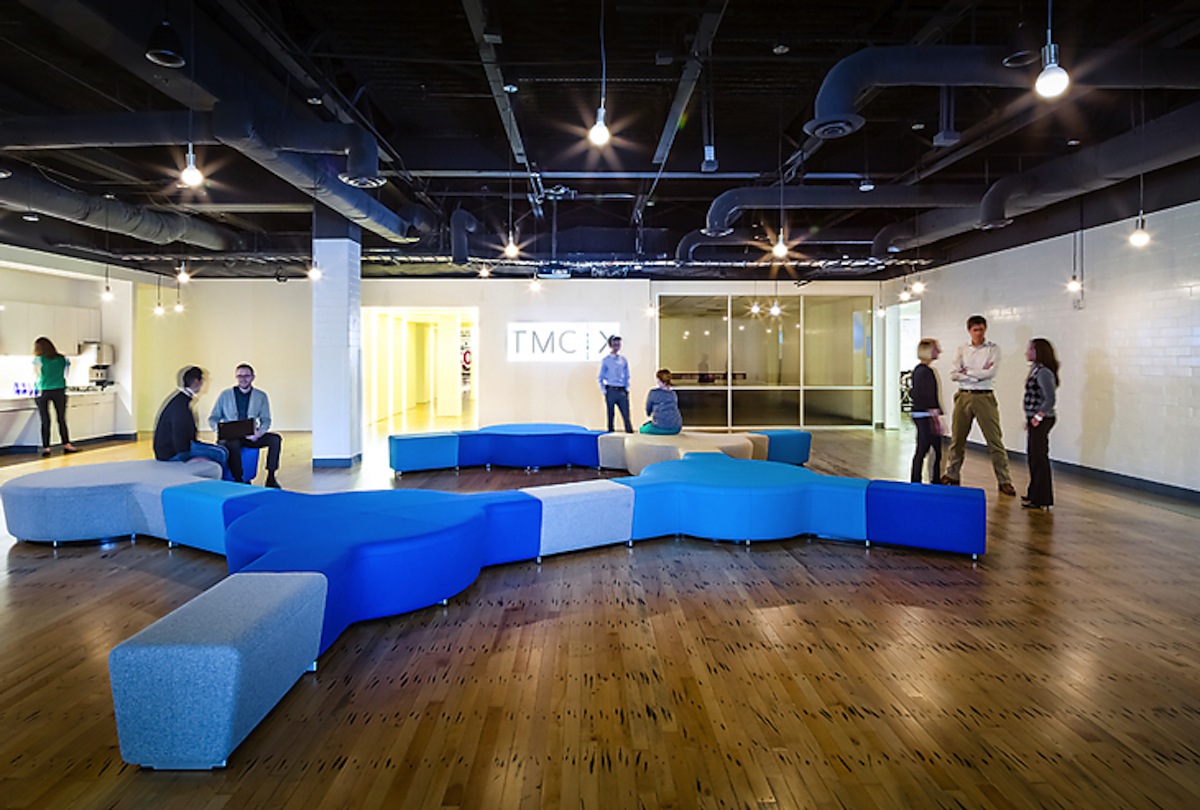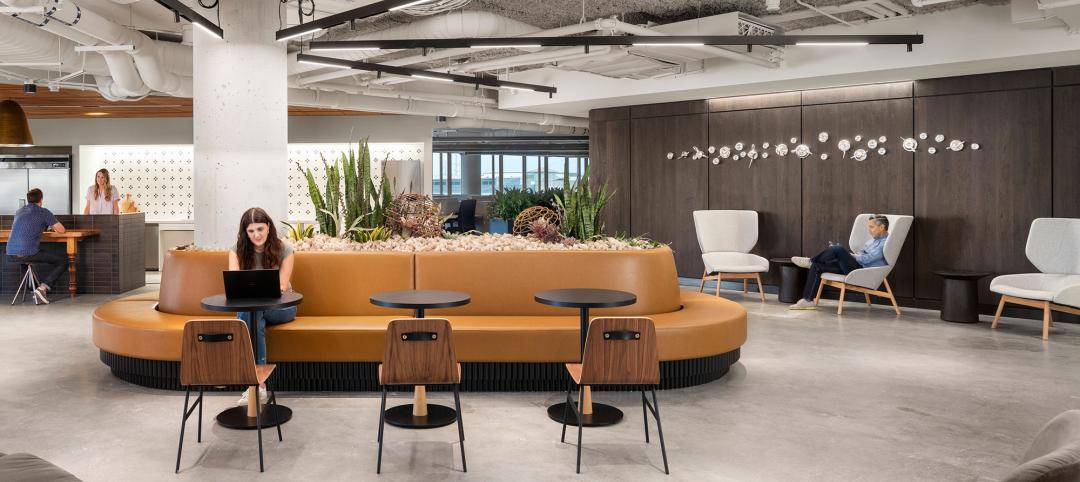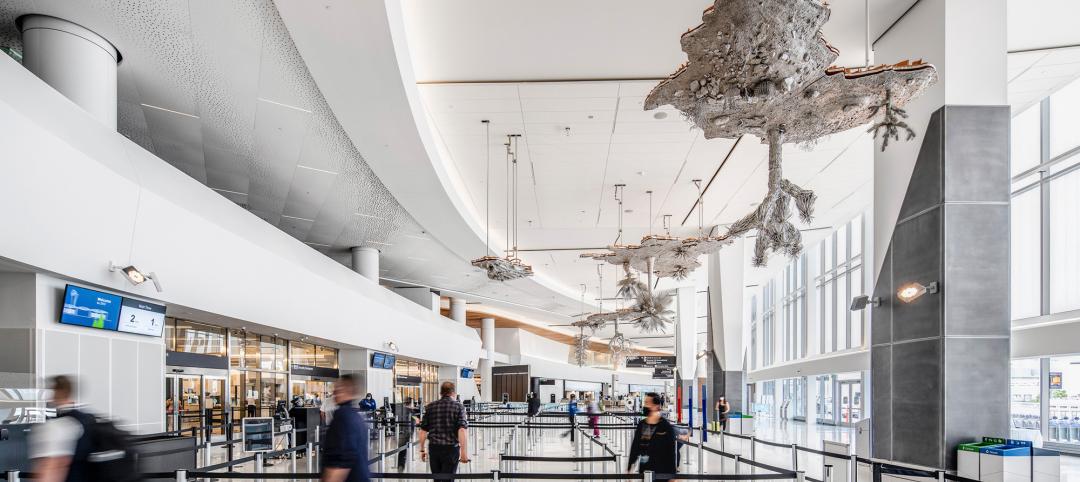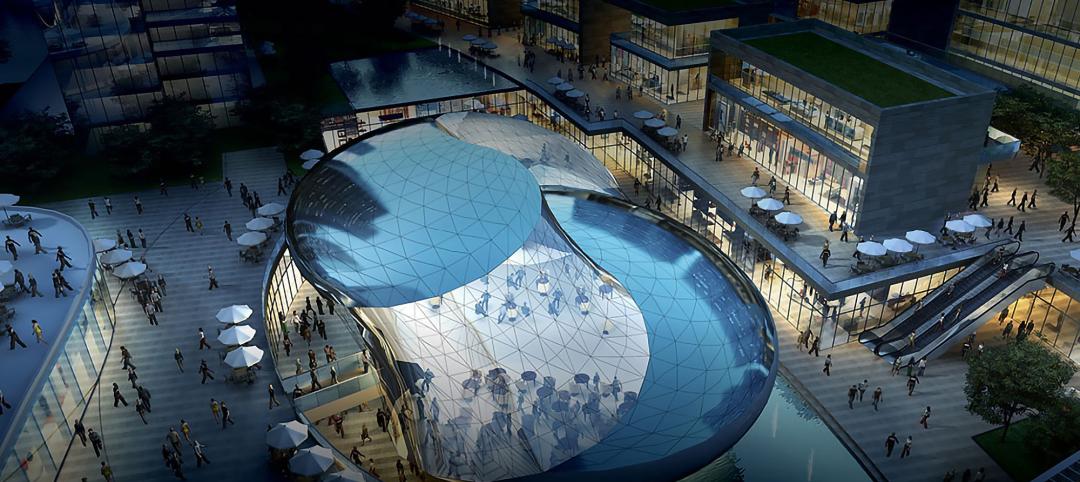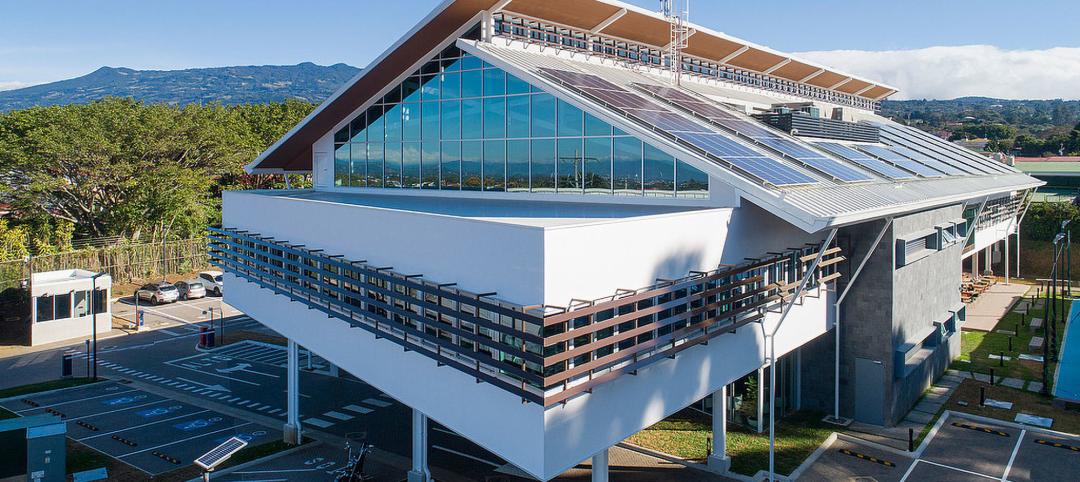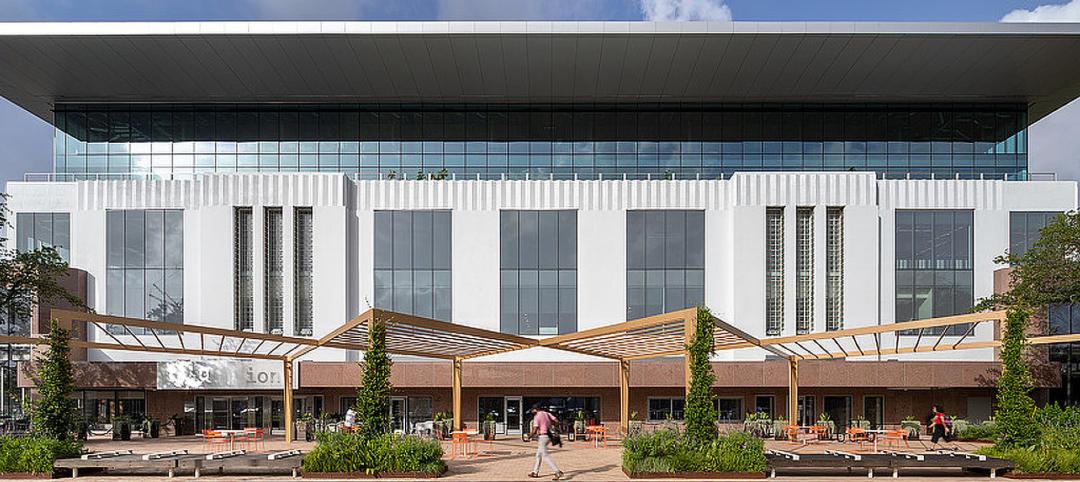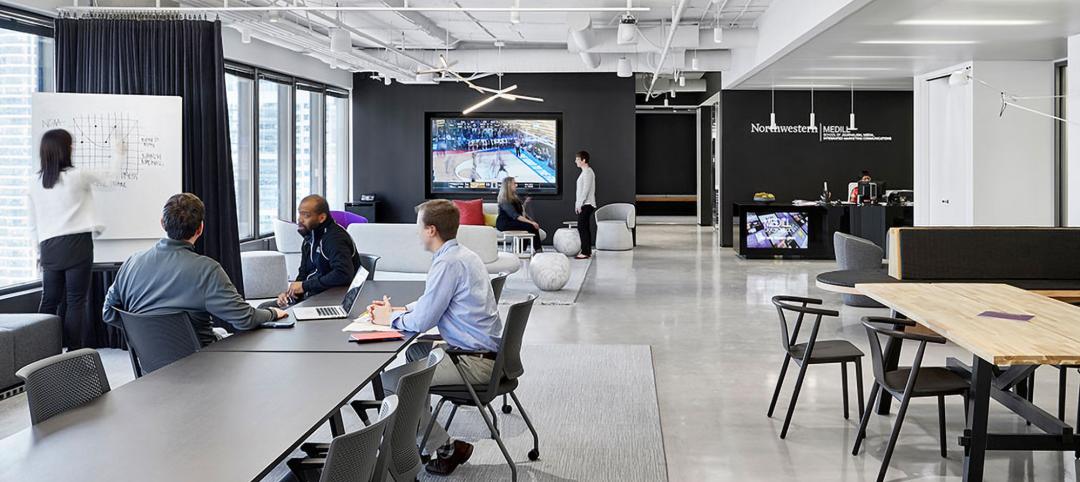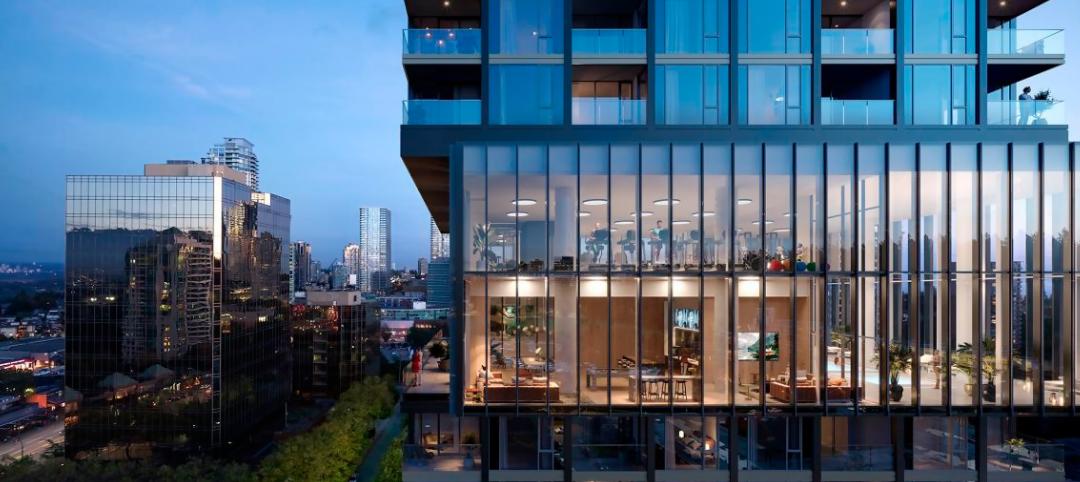This post is the first in Academic Incubators, a series in which Gensler designers explain what academic incubators are and explore why universities build them, students gravitate to them, and private industry funds them.
Google and Facebook are two of the best-known corporations in the world, and the stories of their creation share a common core: both were founded by students while attending universities.
Generating global interest through their tales of young entrepreneurs with the agility to transform a student’s ideas into multi-billion dollar corporations, Google and Facebook’s success stories are legendary. Countless books, magazine articles, blog posts and even a motion picture chronicle these companies’ exponential growth and success. These are two exceptional stories that have ignited a shift in thinking for students, universities and cities, a shift to align students with the connections and resources they need to build their own businesses—and there is an urgency to making these connections happen fast.
The question on everyone’s mind is: is it possible to foster similar success elsewhere? How do students gain access to the resources they need to launch corporations while they’re still in school? How can universities benefit from the ability to generate more than traditional academic output—degrees, publications, research, patents—but rather be seen as places where students can launch their own companies or bring products to market?
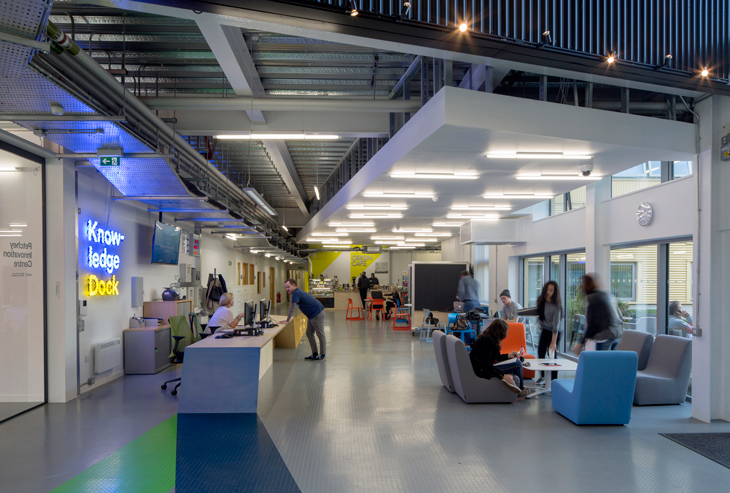 The University of East London Knowledge Dock in London, UK, offers a single space shared by students and start-ups, and offers students a glimpse of where they can go after graduating. Image © Gensler
The University of East London Knowledge Dock in London, UK, offers a single space shared by students and start-ups, and offers students a glimpse of where they can go after graduating. Image © Gensler
This desire has led to the emergence of a new kind of place on university campuses: the academic incubator. Academic incubators are places devoted to fostering strategic partnerships between students, academic institutions and private industry. Today’s university students don’t just want degrees; they want their own businesses, and they want them now. Academic incubators provide the community, resources and environment that makes that possible. Their main goal is to speed innovation by directly connecting students to investors and organizations they might not otherwise encounter.
Businesses are watching this shift with a keen eye, looking for opportunities to identify top talent, new ideas, and fresh perspectives on how they, too, can innovate. An added bonus? Incubators provide environments to which they can contribute financially without having to fully fund. It’s a cost-effective approach to recruiting and research, and gives companies space to re-set their vision in an environment outside their corporate offices.
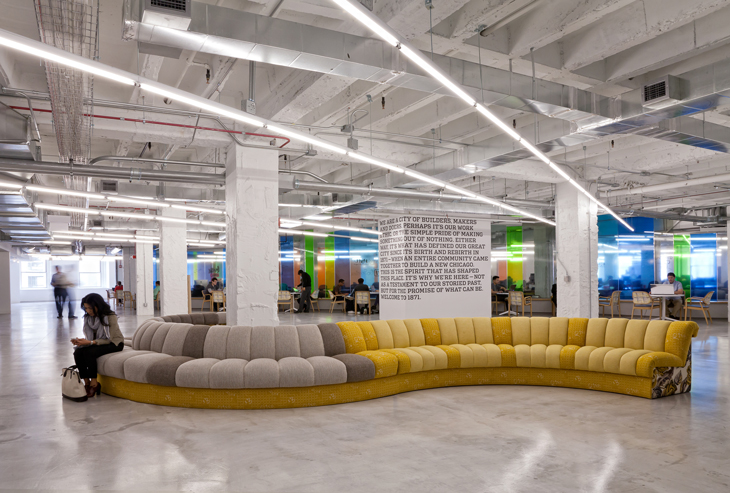 Chicago’s 1871, an incubator in Chicago’s Merchandise Mart, boasts partnerships with the University of Chicago and University of Illinois, and has transformed the culture of its building and urban neighborhood. Image © Gensler
Chicago’s 1871, an incubator in Chicago’s Merchandise Mart, boasts partnerships with the University of Chicago and University of Illinois, and has transformed the culture of its building and urban neighborhood. Image © Gensler
Cities including Chicago and Houston are watching this transformation as well, as they angle to attract young talent and start-up corporations alike. In a savvy move to align his city’s reputation with start-up culture and innovation, Chicago’s Mayor Rahm Emmanuel touted his city’s 1871, a combined co-working space and academic incubator, at press events during last year’s SXSW Interactive. The impact 1871 has had on Chicago has been fast. Since opening in 2012, the incubator has already expanded—twice—at its location within Chicago’s Merchandise Mart. 1871 contributed to attracting a related project to the Mart: Matter, an incubator aiming to fuel the future of healthcare innovation.
In a related move, Houston hopes to leverage TMCx, a new bio-tech incubator at the Texas Medical Center, to reset public perception of its home town. Located on Texas Medical Center’s campus and offering students and start-ups access to unparalleled medical resources, TMCx’s aspirations include positioning Houston as the top destination for people looking to launch bio-tech start-ups.
Design plays a key role in giving body to an incubator’s vision and direction, and sets the tone for what happens inside. While incubator design shares a common theme of offering flexibility, it does more: the design offers cues to people using the spaces, so they are inspired to connect in new ways. In a marked shift from traditional academic design, incubators are more closely related to co-working spaces and start-up offices than they are to traditional classrooms, student unions, libraries or laboratories.
The design for an incubator space must be engaging, invite authorship, and offer people choice and control over where and how they work. Incubators offer students a glimpse of where they could go after they make the leap from campus to workplace. Maker spaces, hallmarks of incubator design, offer students a variety of different places to make, test, break and rebuild ideas.
In the coming months, designers across Gensler’s global education design practice will share stories of the academic incubators they’ve designed in cities including London, New York, Chicago, Houston, Cambridge, Baltimore, Sao Paolo and Souzhou. We’ll explain in detail the myriad benefits incubators offer students, universities, industry and cities alike, as we articulate why good design can differentiate successful incubators from those that fall short.
About the Authors: Jill Goebel is a design director in Gensler's Washington, D.C., office and a regional practice area leader for Education & Culture. Contact her at jill_goebel@gensler.com. Christine Durman is a designer in Gensler's San José, Costa Rica, office. Contact her atchristine_durman@gensler.com.
More from Author
Gensler | Apr 15, 2024
3 ways the most innovative companies work differently
Gensler’s pre-pandemic workplace research reinforced that great workplace design drives creativity and innovation. Using six performance indicators, we're able to view workers’ perceptions of the quality of innovation, creativity, and leadership in an employee’s organization.
Gensler | Mar 13, 2024
Trends to watch shaping the future of ESG
Gensler’s Climate Action & Sustainability Services Leaders Anthony Brower, Juliette Morgan, and Kirsten Ritchie discuss trends shaping the future of environmental, social, and governance (ESG).
Gensler | Feb 15, 2024
5 things developers should know about mass timber
Gensler's Erik Barth, architect and regional design resilience leader, shares considerations for developers when looking at mass timber solutions.
Gensler | Jan 15, 2024
How to keep airports functional during construction
Gensler's aviation experts share new ideas about how to make the airport construction process better moving forward.
Gensler | Dec 18, 2023
The impacts of affordability, remote work, and personal safety on urban life
Data from Gensler's City Pulse Survey shows that although people are satisfied with their city's experience, it may not be enough.
Gensler | Nov 16, 2023
How inclusive design supports resilience and climate preparedness
Gail Napell, AIA, LEED AP BD+C, shares five tips and examples of inclusive design across a variety of building sectors.
Gensler | Oct 16, 2023
The impact of office-to-residential conversion on downtown areas
Gensler's Duanne Render looks at the incentives that could bring more office-to-residential conversions to life.
Gensler | Sep 13, 2023
Houston's first innovation district is established using adaptive reuse
Gensler's Vince Flickinger shares the firm's adaptive reuse of a Houston, Texas, department store-turned innovation hub.
Gensler | Aug 7, 2023
Building a better academic workplace
Gensler's David Craig and Melany Park show how agile, efficient workplaces bring university faculty and staff closer together while supporting individual needs.
Gensler | Jun 29, 2023
5 ways to rethink the future of multifamily development and design
The Gensler Research Institute’s investigation into the residential experience indicates a need for fresh perspectives on residential design and development, challenging norms, and raising the bar.

